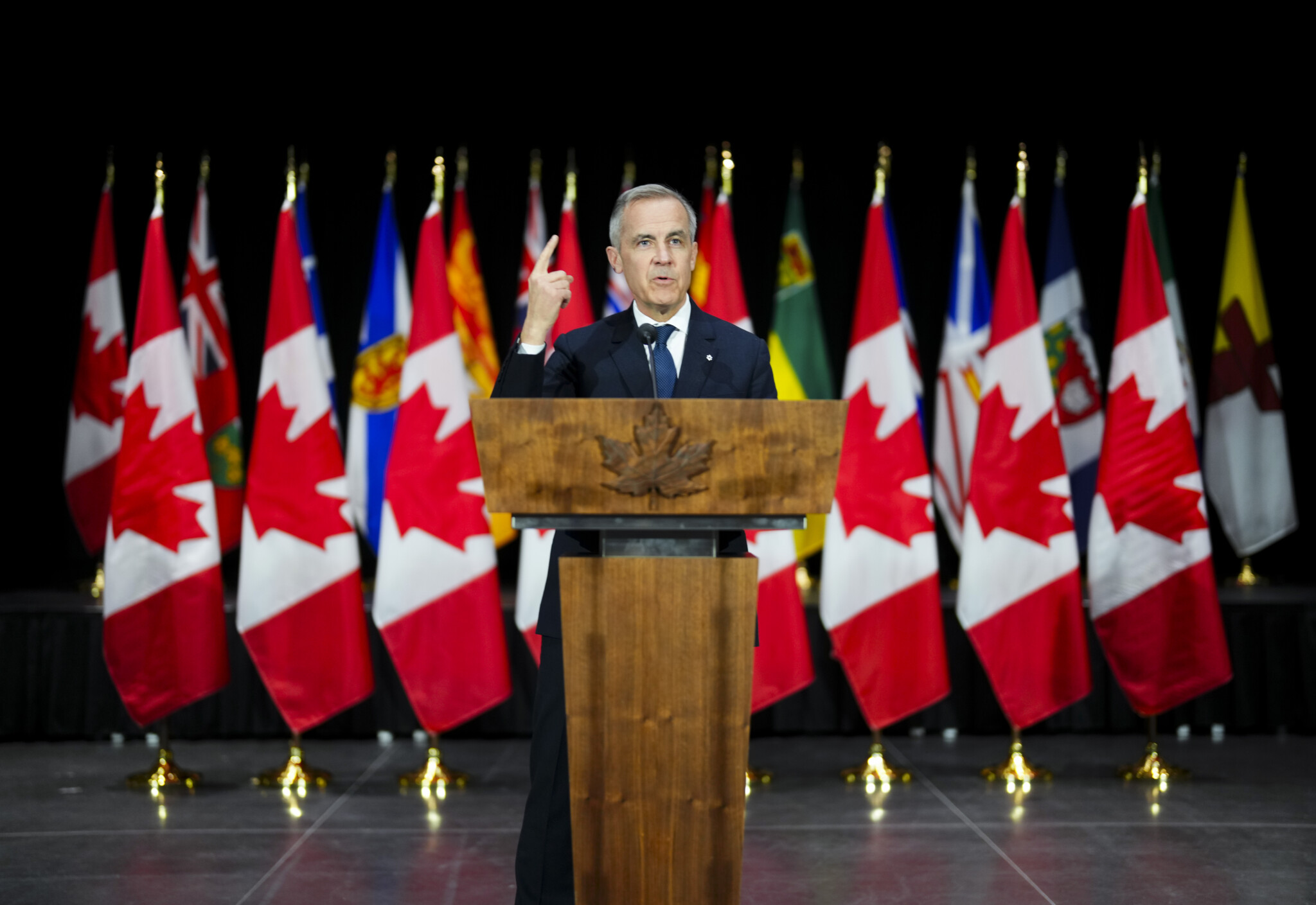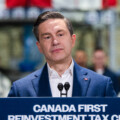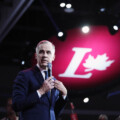In The Weekly Wrap, Sean Speer, our editor-at-large, analyses for Hub subscribers the big stories shaping politics, policy, and the economy in the week that was.
Albertans are fed up with the status quo—and understandably so
The whole purpose of Canadian Confederation was to bind the disparate provinces into a national economic union in the face of U.S. protectionism. As my former boss Brian Lee Crowley often reminds us, the only new entity to come out of Confederation was a national government with the mandate to overcome competing provincial interests and perspectives and assert itself on behalf of the national interest. George Brown famously spoke of “throw[ing] down all barriers between the provinces—to make a citizen of one, citizen of the whole.”
This week, Mark Carney set out quite a different understanding of the confederation project. When asked about the potential for an east-west pipeline, he said that such a project would require the support of Quebec—or to put it differently, would be subject to a Quebec veto. (The same would ostensibly apply to other provinces in the case of other national projects.)
This denuded vision for the federal government is a direct challenge to Confederation itself. If Canada is just a disparate collection of provinces, each with the freedom to impede the functioning of the national economy, what’s the point of a national government? What’s the point of Confederation at all?
Think about it from the point of view of Albertans. They’ve long accepted a constitutional arrangement in which they disproportionately contribute to the federal coffers, ostensibly in exchange for the national government to stand up against provincial parochialism and for the national economy.
Yet if the federal government won’t live up to its end of the deal—if it won’t enforce its role in the national economic union—and Alberta needs to essentially buy off the other provinces to build interprovincial infrastructure, one could see how it could cause Albertans to question the Confederation bargain.
This, by the way, isn’t in conflict with a decentralized vision of Canadian federalism. We need a national government that respects provincial jurisdiction—that resists the political temptation to intrude itself in exclusive domain of the provinces—but that’s also prepared to assert itself in its own areas of exclusivity.
If Ottawa won’t defend its constitutional role in the national economy—if instead we revert to a pre-confederation system of competing provincial interests and no one who speaks for Canada—we shouldn’t be surprised when Albertans begin to doubt Canada itself.
The Hub turns four
This weekend marks the four-year anniversary of The Hub. The past year was one of great progress and change.
It started with the launch of a new website in May 2024 and culminated with the launch of The Hub’s YouTube channel—including a daily election show—as the publication year comes to an end. And of course there were a lot of exciting developments in the intervening months.
We experienced ongoing growth in The Hub’s audience across our channels. Web traffic and for instance continued to grow markedly. Page views on the website increased by 60 percent compared to the previous year.
Podcasting was another major source of growth. We hit 1.6 million downloads for the year—or roughly 420,000 listening hours. The upshot: Hub Podcasts is now consistently among the top five to ten most popular in Apple’s Politics category in Canada overall and second among Canadian-based podcasts.
The Hub’s YouTube channel has also seen tremendous growth in a short period of time. In the past 30 days alone, it’s been home to 2.1 million views—or the equivalent of 434,000 listening hours.
But of course it’s not just about numbers. Our real motivation is ideas and arguments. Particularly in a moment of such turmoil and uncertainty, we’ve sought to help The Hub audience make sense of things.
Over the past twelve months, Hub Podcasts have been home to major guests like Alberta Premier Danielle Smith, former Prime Minister Stephen Harper, historian Margaret MacMillan, New York Times columnist Ross Douthat, and of course David Frum who went from a twice-monthly guest to a weekly one early in 2025.
We also launched new podcast shows like Free Press, a media criticism show hosted by The Hub’s managing editor, Harrison Lowman, and Bricker & Speer, with leading Canadian pollster Darrell Bricker, to give The Hub’s audience new and different perspectives on Canadian culture, journalism, and politics.
The year saw The Hub kick off a new event series across the country, including speaker events with David Frum and Oren Cass in Calgary, Ottawa, and Toronto, as well as pub nights in Ottawa, Vancouver, and Toronto.
One of the year’s biggest developments occurred last month when The Hub hired Theo Argitis, among Canada’s most experienced and well-respected economics journalists, as our new editor-at-large for economics and business. He’s already making a huge contribution, including the launch of his new weekly digest, The Notebook.
We were proud to make our own contribution to Canada’ public policy debates on various topics over the year, including economic and fiscal policy (including what we called “the lost decade”), Canada-U.S. relations, and the federal government’s controversial journalism subsidies—an issue where we helped to spearhead the Ottawa Declaration on Canadian Journalism which was signed by several independent outlets and leading journalists like Andrew Coyne to declare their opposition to public subsidies for the industry.
Yet as proud as we are about these various accomplishments, we know that The Hub couldn’t do it alone. There’s a reason why we often talk of the Hub community.
We’re so fortunate to have, in our judgement, the most interesting and thoughtful stable of writers of any news outlet in the country by far—including Ginny Roth, Howard Anglin, Trevor Tombe, Joanna Baron, Richard Shimooka, Alicia Planincic, Patrick Luciani, Malcolm Jolley, and of course The Hub’s in-house poet Jack Mitchell, among others.
We also have the most generous and thoughtful readers and subscribers. We’re grateful to be in a two-way conversation with them about the big issues facing the country.
As The Hub enters its fifth year in what is bound to be an extraordinary time in the world of policy and politics, we’re as motivated to grow and support our community as we were four years ago.










